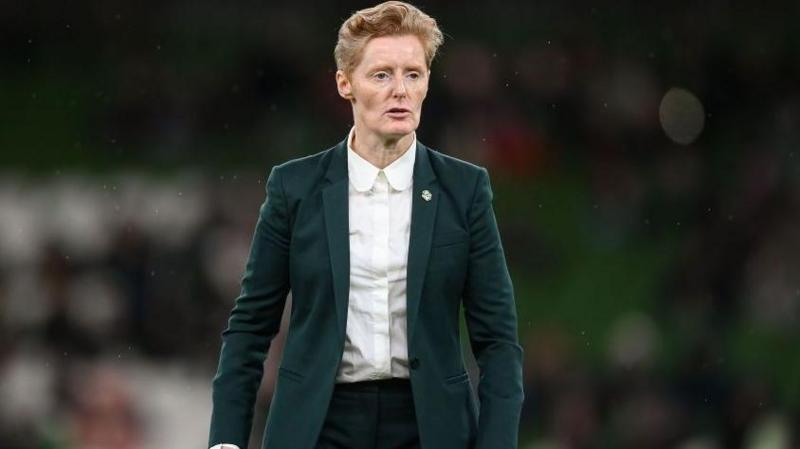FAI Denies Gleeson's Explosive Gender Discrimination Claims




The Football Association of Ireland (FAI) has stated that it will assemble a "strong legal defence" amid surprising allegations of discrimination brought forth by Eileen Gleeson, the former head coach of the Republic of Ireland Women's national team. This development adds another layer of complexity to the already intricate relationship between sports governing bodies and coaching staff worldwide, highlighting key issues surrounding workplace practices in sports.
Eileen Gleeson, who had been at the helm of the Irish women’s team, stepped down from her role and subsequently lodged a formal complaint against the FAI, citing discriminatory practices that she alleges were part and parcel of her professional environment. The specifics of Gleeson's allegations have not been made public, but they have undoubtedly stirred a significant conversation about the treatment of female coaches in football, an arena that is already under scrutiny for its gender disparities.
The FAI's prompt commitment to a robust legal defence suggests that the association is prepared to contest Gleeson's claims vigorously. This scenario is not just about a coach and a football association but touches on broader themes such as fair treatment, equal opportunities, and the professional challenges female coaches face in a predominantly male-dominated sport.
Gleeson's coaching stint with the Republic of Ireland was marked by several highs, but it is the nature of her departure that may leave a lasting imprint on the public perception of the FAI. A highly respected figure in women's football, Gleeson brought a wealth of experience and passion to the team. Her allegations have thus sparked a wave of support from various quarters including fans, former players, and advocacy groups pushing for more stringent measures against discrimination in sports.
The implications of such legal challenges are significant not only for the parties involved but also for the governance of sports organizations globally. Instances like these are pivotal in influencing policy changes and in reinforcing a commitment to diversity and inclusion across all levels of professional sports. They also serve as a critical reminder to other national sports bodies to reevaluate their workplace cultures and the mechanisms they have in place for conflict resolution.
Moreover, this situation provides an opportunity for the FAI to demonstrate its commitment to its core values and ethical standards. Offering a transparent and thorough examination of the issues presented by Gleeson could enhance public trust and confidence in their operations and possibly set a precedent for how similar cases are handled in the future by other sports administrations.
The broader cultural implications of Gleeson's case extend beyond individual grievances. They touch on the ongoing struggle for equality in sports, the challenges of maintaining professionalism within competitive, high-stake environments, and the systemic changes needed to ensure fair treatment for all employees, regardless of gender.
Fans and stakeholders in Irish sports, and indeed global observers, will be watching closely as the legal proceedings unfold. The outcome of this case could be influential in setting a new standard for how discrimination complaints are managed in sports, potentially inspiring similar introspection and reform in sports bodies worldwide.
Overall, Eileen Gleeson's courageous step in speaking out opens up essential dialogues about justice, equity, and the true spirit of sportsmanship in football. Her case represents a critical moment for the FAI and could become a landmark in the ongoing journey toward a more inclusive and respectful sporting world. Whether these developments will result in meaningful change remains to be seen, but the importance of her actions—and the FAI's response—cannot be understated.